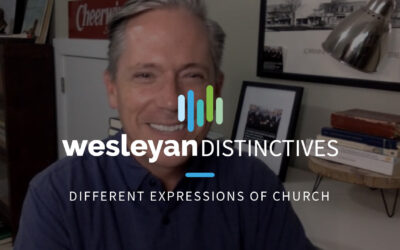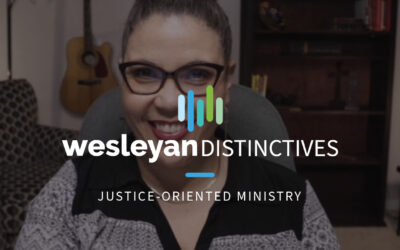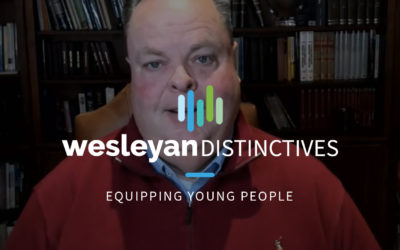
The Wesleyan Distinctives series introduction
Ethan Linder
For most people in our congregations, transition feels like the only constant. We’re consistently adjusting our schedules, navigating conversations in workplaces, greeting new neighbors and seeing old ones move away. Often, we feel less like we’ve arrived at a destination, and more like we’re living in the space between. Uncertainty seems like one of the few things that’s dependable.
Sometimes, we bail on this feeling of uncertainty by looking to theology to provide a rigid view of clarity, certainty and a polished answer that can help us escape the feeling of helpless unknowing.
Good theology, though, isn’t an escape from uncertainty. It’s a wrestling with how God’s voice shows up in the space between. At its best, Wesleyan theology helps us hold together what others hold in tension. We’re from a theological tradition that believes in restorative justice and inward renewal, historic tradition and fresh innovation, spiritual formation and social witness, Spirit-filled worship and Spirit-commissioned work.
These Wesleyan distinctives will shape how we talk about God’s way of animating our shared values toward effective ministry during a disruptive time.
Latest Distinctive
Distinctives

Reflecting the good shepherd’s heart
Shepherding and caring for others should be an all-encompassing reflection of God and his relationship with creation.

Kingdom imagination
Wesleyan’s embrace a culture of freedom to embody different expressions of the church.

Making all things new
Wesleyans believe laity are called to be ministers, engaging in God’s transformative work in the world.

Reflecting the good shepherd’s heart
Shepherding and caring for others should be an all-encompassing reflection of God and his relationship with creation.
More Distinctives
Kingdom imagination
Wesleyan’s embrace a culture of freedom to embody different expressions of the church.
Making all things new
Wesleyans believe laity are called to be ministers, engaging in God’s transformative work in the world.
“Forget not the captive” (hymn 63)
Wesleyans sing a different tune, serving and seeking justice for those in need.
Tell them you believe in them
Someone encouraged and invested in us. Now, TWC, it is our turn.
Evangelism through testimony
Organic gardening helps cultivate a pathway for Wesleyans to embrace personal evangelism.
Holy living and justice
God’s call to be holy moves us beyond ourselves to act justly on behalf of others.





